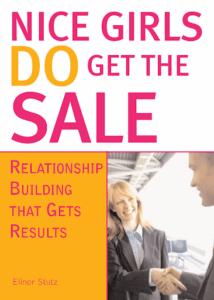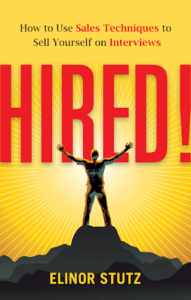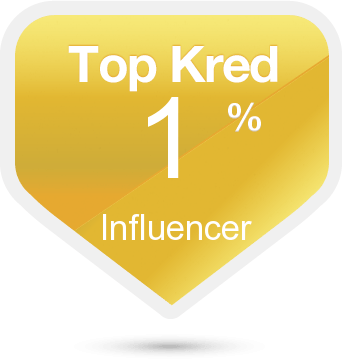Photo by Steve PB via Pixabay
Attract The Right Job Or Clientele:
How to Choose the Right Business for You
Note: Jeff Morrill, Author and highly successful Serial Entrepreneur, provides today’s guest blog, Do You Take The High Road to the Bottom Line?

Jeff Morrill Shares How to Choose the Right Business For You
How to Choose the Right Business for You
What does your business idea look like if you were to write it down on the back of a napkin? Let’s say you want to open an organic lemonade stand on your front lawn. If you pay someone $15 an hour and sell a cup for a buck each, can you imagine selling 15 cups an hour? If you can’t even cover the labor costs, you know you don’t have much of a business.
______________
Maybe you think you can sell 100 cups an hour. After figuring in all the expenses such as payroll taxes, insurance, lemons, cups, etc., the math still “pencils out.” It looks like you might have a viable concept. To find out if there’s enough juice in the squeeze, you can start making phone calls and testing your early guesses on the costs of wholesale fruit, insurance, etc. No matter the business, there is always worry about profit margins.
“Because something will sell doesn’t mean it will sell profitably.
In the car business, you hear “there’s an ass for every seat,” which means every car eventually does sell. I can tell you from experience that the wallets in those pockets don’t always pay enough to generate a profit!
Cost of Entry
Come to know the positive correlation between profit margins and the cost of entry into a business. Consider a neighborhood pizzeria, a business with relatively few barriers. You can probably open one for less than $100,000. The rent on a little slot in a strip mall might be a modest few thousand dollars a month. You and a few family members can provide the labor, and there’s nothing complicated about making the food. A pizza shop is one of the easiest businesses to open. It’s the reason why there are over 75,000 pizza restaurants in the United States: one for every 4,500 Americans.
And unless you can figure out some chain or franchise model, your potential upside is relatively limited. On the other extreme, compare the pizzeria with a local television station with larger profit margins. Broadcasting requires extensive technical knowledge, significant facility investments, and many governmental approvals. In which business would you rather be?
Look for opportunities where the cost of entry is higher for others but lower for you. John and I were able to open a business with relatively high entry costs because we had skills and connections in automotive retail. We were willing to start with a franchise that interested fewer dealership buyers. In 1998, Subaru was a low-volume, niche brand known in the industry as a “hard work franchise.”
All In Or On The Side ~ Attached to Worry About Profit Margins
Should you quit your day job and dive headfirst into a business venture? Or is it best to ease your way in with a smaller business that you run on the side? If the latter, you can scale up gradually and eventually grow it into a full-time deal.
My cousin Dan started a landscaping company as a side hustle while he went to college. He began with his strong back, a lawnmower, and a pick-up truck. He enjoyed many benefits:
- He risked very little at the beginning. When my brother and I opened Planet Subaru, we had to wrangle several hundred thousand dollars in cash, and we were on the hook for millions more in inventory loans. If Dan’s business had failed, his losses would have been much smaller than ours would have been, and he could have recovered quickly.
- He allowed himself to test drive the industry, to decide whether he wanted to enter into a lawn-term relationship. He educated himself about the opportunities and determined that he enjoyed spending his days doing them.
- He never needed to take on a ton of debt because he could grow organically. He could use his business revenue to make further investments to grow the business. Borrowed money is a powerful tool that can turbocharge the growth of a business. It’s great to expand your business using someone else’s capital. You can also blow yourself up on the downside if you don’t stay ahead of the payments you owe to lenders.
- Dan was able to develop a minimum viable product (MVP) inexpensively. You usually encounter the MVP concept in Silicon Valley circles. You can test your idea’s practicality and start getting feedback from customers. Then you can continue to build and improve your business, products, and services. In Dan’s case, a mower and a truck got him into neighborhoods to test his assumptions about pricing, demand, and other factors.
- He kept his cost structure compact because he didn’t need a dedicated facility right away. He avoided many costs that come with most full-time businesses, such as personnel. Dan could nimbly expand or contract his business as economic or other circumstances dictated. The flexibility makes starting a business more fun. Mainly, you don’t stay awake every night worrying about all the things outside your control that could wipe you out.
Benefits To Going All In Despite Worry About Profit Margins
- Psychologically, something powerful occurs when you’ve committed entirely to a project. A failure is no longer an option. The need to succeed becomes a powerful motivator.
- You can focus all your energy on building the business. It’s difficult to build momentum in a company using the leftovers of your time, energy, and capital from the other parts of your life.
- Going all-in increases the size of the business you can take on. Larger enterprises generally produce more profit. Side hustles run the risk of trapping you in a situation without enough upside to justify all the effort and risk. Many of the businesses that start as side hustles are just buying yourself a job. I think of all the tool distributors who have shown up in their box trucks at the dealership over the years, selling tools to our technicians. Few will last very long. Many former technicians want to own their businesses, but they end up earning less than they would if they had just kept their original jobs.
- Be bold, and mighty forces will come to your aid. I can’t explain why this advice from writer Basil King works, but the sentiment did help John and me muster the courage to jump in. And don’t underestimate the power of really believing you can accomplish something. Roger
Bannister broke the 4-minute mile barrier in 1954. It was a record previously considered all but impossible by doctors and so-called experts. He was the first human to accomplish the feat. His achievement opened up the floodgates by showing others that they could do it. Within a year, three people did it in a single race.
If you do end up pushing all your poker chips to the center of the table, I recommend finding a way to start pulling some of those chips back as soon as you can. It will help lessen the worry about profit margins. When John and I opened Planet Subaru, we needed every penny we could get our hands on to open the dealership. We had no reserves. For financial and psychological reasons, this was not a condition we wanted to continue any longer than necessary. Big bets allow for rapid growth but expose you to serious risk. As we started generating cash, we could have used that money to secure loans for more dealerships. But we chose instead to strengthen the finances of the dealership we already had. We lived by the old army adage,
“There are old warriors, and there are bold warriors, but there are no old, bold warriors.”
Freelancer or Entrepreneur?
Author Seth Godin distinguishes those who want to work for themselves and those who
want to build a business that will pay them when they’re not working. “A freelancer is someone who gets paid for her work. She charges by the hour or perhaps by the project. Freelancers write, design, consult, advise, do taxes, and hang wallpaper. Freelancing is the single easiest way to start a new business. Entrepreneurs use money (preferably someone else’s money) to build a business bigger than themselves. Entrepreneurs make money when they sleep. Entrepreneurs focus on growth and on scaling the systems that they build. The more, the better.”
Franchise or Independent?
We chose a franchise model with our dealerships. We own our own business but use the products and business model (Subaru and Chrysler/Jeep/Dodge/Ram). Contrast this arrangement with an independent used car store that an entrepreneur opens independently of any other company or manufacturer.
The franchise model helps a lot early on. The franchisor will give you lots of data drawn from outlets in similar markets. The data allows you to create a pretty accurate forecast of your revenues and expenses before committing. The franchisor will give you a template for getting the business started and will usually supply some or all of the products you sell. Many people appreciate this “holding hand” initially to help overcome their fear of starting a business. If you do well with one store, you might replicate the model repeatedly, creating a chain of stores.
When you buy a franchise, you marry the franchisor. In our case, our success depends mainly on the quality of the vehicles that our manufacturers build and the policies they enforce. Differences between franchisor and franchisee can and do arise, just as you would expect in any partnership. The big franchisor will always command a lot more power than your small business. Even though you own your business, the franchisor has a lot to say about what happens there. And they take their cut of your revenue through fees, mandatory programs, or a percentage of your sales.
You control a lot more when running an independent business, but it can be challenging for a novice businessperson to start. You have to figure out everything on your own. Unlike a franchise that usually brings some brand recognition, you have to build your brand from the ground up.
Buy An Existing Business?
Buying an existing business saves you a lot of start-up challenges. The phone system is already in place. Most of the permits and vendor accounts update reasonably easily with new ownership. Imagine buying an electrical supply store that has been in business for ten years. Customers already shop at the store every day, so you have revenue from the beginning. When deciding to buy it, you can make pretty accurate forecasts of costs and receipt of payment based on data instead of guesstimates. These benefits have value, and the seller will typically want a fee on some multiple of the earnings the business currently generates. If the shop is making $200,000 per year, you know the seller will likely want at least that much for it, or maybe several times that much.
Don’t Forget The Real Estate
You know the cliché about real estate, “they ain’t making any more of it.” Our first location, which we leased, started as a facility for Nissan. It then grew to include Mercedes, Acura, Subaru, Saab, Lexus, and finally, McLaren sports cars. Factories keep producing vehicles, and franchises come and go. Saab doesn’t even build cars anymore. The underlying real estate will always have value.
That value generally increases over time, typically at least keeping pace with inflation, sometimes increasing dramatically under the right conditions. Routinely, the real estate value that a business occupies exceeds the value of the company itself.
When we moved to a larger facility in 2002. We bought it with a typical twenty-year commercial mortgage. We set the property up as its own company. Planet Subaru Inc. paid rent to our property company, just as it previously paid rent to our original facility’s owner. The end of the twenty-year mortgage seemed a long way off when we signed the loan in 2002. We refinanced a couple of times as interest rates declined after the Great Recession and recently paid it off. Now, that monthly rent check flows into our property company with nothing more owed to the bank. The “mailbox money” shows up monthly with relatively small investments of time and emotional energy compared to the challenges of operating a complicated retail business.
As you’re looking at business opportunities, consider the possibility of owning the real estate immediately or eventually. Real estate might be your retirement plan.
A friend started a flooring store in a mini-mall with five other smaller businesses. Initially, he leased his space, the largest of the six units. But when the site owner listed the property for sale, he took out a loan and bought the whole thing. His flooring business was doing well enough that he felt confident that the biggest tenant would remain in place over the long term. His flooring business never grew but adding the real estate income stream increased his overall revenue substantially.
There are defensive reasons for owning a facility, too. When you lease, you’re at the mercy of the property owners when the term expires. They can choose not to renew the lease at all or significantly raise your rent. You might have to move and reestablish your brand elsewhere, a risky and potentially expensive situation. And the whole time you are leasing, you’re reluctant to renovate because the property owner keeps all your improvements if you leave.
The Last Point
I strongly encourage you to talk with one or more people already in the business of interest upfront to see if they enjoy it and recommend it. As discussed in Daniel Gilbert’s Stumbling Upon Happiness, humans do not generally score high marks for accuracy in predicting what will make us happy. “Test driving” a version of the future can help you compensate for this inherent human frailty. These experts can also share their wisdom for succeeding in that line of work.
For More Insights: Visit Elinor’s Amazon Author Page
“Communicate to Attract Interest“

Be A Story-Teller
As the CEO of Smooth Sale, after her near-death experience, Stutz adapted the motto,
“Believe, Become, Empower.“
”Nice Girls DO Get the Sale is an International Best-Selling and Evergreen Book – among the classics;
HIRED! Helped many to secure the job they desired.
Related Blog Stories:
Sales Tips: Do You Worry About Profit Margins?
- Find the CRM system that matches your requirements
- Hire an accountant if you do not have the talent
- Capture all expenditures
- Track accurate receipt of funds
- Pay taxes on time
- Consider charitable donations for a write-off
- Follow the stock market
- Before selecting a partner do small projects together
- If you have a team, ensure everyone strives for a returning and referring clientele
- Celebrate Success!
Today’s insights are provided to help you achieve the Smooth Sale!
RESOURCES FOR PERSONAL AND BUSINESS GROWTH:
Advisorpedia Publishes information to help advisors build their practice, and those having an interest in the markets choose investments and find inspiration.
BizCatalyst360 Presents a life, culture, and biz new media digest serving as a hub of creative expression and personal growth.
CatCat Build your future one skill at a time.
For Book Lovers Only For Book Lovers Only introduces you, the book lover, to new and exciting authors and works of fiction and non-fiction.
GetCiara Make remote your unfair advantage.
Greg Jenkins Consulting LLC – Helping organizations realize the value of diversity to build inclusive, evolving, high-performing cultures.
Growth Hackers – Helping businesses worldwide grow with lead generation, growth marketing, conversion rate optimization, data analytics, user acquisition, retention, and sales.
Inclusion Allies Coalition “Everyone is welcome here.” Learn more to train teams, and join the advocacy program.
Internet Advisor Find the internet service right for you among 2083 internet providers across 36,380 cities, plus Cellphonedeal compiles great deals on phones, plans, and prepaids to furnish you with the best options in your area.
Kred Connect with top-rated influencers to learn from and grow your networks.
LinktoEXPERT “It is not who you know – it is who knows you and what your expertise can do for them plus understands the value of hiring you.”
Lotus Solution LLC Helps organizations create diversity and inclusion to ensure a fair and a just workplace through customized consulting, training, and keynote speeches.
SalesPop! Purveyors of Prosperity; how to compete against yourself to excel in your career.
Simma Lieberman “The Inclusionist” helps develop inclusive leaders from the inside out to champion diversity and build equitable, inclusive cultures at every level.
Vengreso Provides easy-to-follow on-demand sales training for LinkedIn.
Vunela Provides a unique opportunity to view Videos and read articles by World Leaders.
WebTalk is the one-stop platform. Build your marketplace and grow social connections.
Women’s Information Network (WIN) An education-and-event-based Global Community of Women Helping Women Worldwide Live Their Best Lives through Celebration, Self-Improvement, and Service.
d-event-based Global Community of Women Helping Women Worldwide Live Their Best Lives through Celebration, Self-Improvement, and Service.









